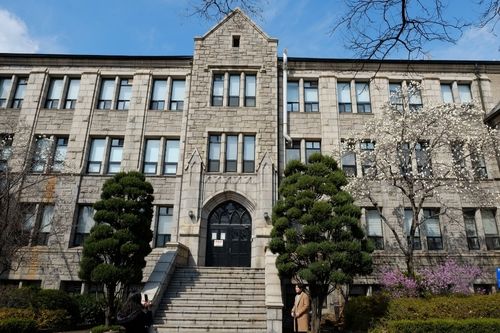Table of Contents
- Mass media and communication
- Why pursue mass communication?
- Top colleges for mass communication
- The University of Amsterdam
- The University of Southern California
- The London School of Economics and Political Science (LSE)
- The University of Texas at Austin
- Nanyang Technological University, Singapore (NTU Singapore),
- Careers in Mass Communication
- Key takeaways
- FAQs
Mass media and communication
The media is in a near-constant state of flux, with legacy media operations shrinking and, in some cases, closing entirely. There has never been a more exciting time to pursue media, and it is the correct time for people who want to understand the industry’s current complexities. The media industry is notoriously competitive, and some areas still value first-hand experience over academic credentials. Still, a media studies degree will provide you with a solid foundation for a career in journalism or a related media role. Graduates can also work in public relations, television production, program research, marketing, communications, or publishing. Let’s look at the top mass communication colleges abroad.
Why pursue mass communication?
Media and mass communication courses offer various options for the next generation of media professionals who want to pursue a career in the industry. The course structure reinforces the inherent qualities of curiosity and imagination and helps create and enhance skill sets specific to the field. Here are some reasons why you should opt for this course, with an array of the best universities for media studies –
- Various career opportunities
- Creativity
- Learn about digital journalism and media.
- Adventure and travel
- Unique opportunity to work in the ever-changing media industry
Top colleges for mass communication

Here are the best mass communication colleges in world.
The University of Amsterdam
Ranked first in the world, the university offers one-year masters in mass communication abroad in New media and design culture, film studies, television, and cross-media culture. They also provide specialized dual and research master’s programs in English media studies and it is one of the best colleges for mass communication in world.
The university has four campuses, and its teaching and research operations are in Amsterdam, the capital city of the Netherlands. The leading site, which houses the city library and academic facilities for the humanities faculty, is in the heart of Amsterdam. The university library has over four million books in volume form for use in teaching and learning.
Because of its 4.3% admission rate, the selection procedure at the University of Amsterdam is challenging. Admission to UvA courses requires a solid academic record with a GPA of at least 3.2. For popular courses like MBA and Executive MBA, the college recommends a GMAT score of 650.
The University of Southern California

The university’s ranking has been reasonably stable. The Wall Street Journal and Times Higher Education ranked it 19th out of over 1,000 public and private institutions in 2023 and considered one of the best colleges for masters in mass communication abroad.
Over 71,000 applications were received for the first-year fall class of 2023. University of California’s acceptance rate is currently 12.5%. For the past five years, there has been an increase in the number of students who are the first in their families to join the university.
The University of Southern California offers over $640 million scholarships and financial aid. A new USC initiative allows students earning $80,000 or less per year to study tuition-free.
The London School of Economics and Political Science (LSE)
The LSE approaches all of its teaching and research from a social science perspective, giving the institution a unique perspective on otherwise standard fields and it is one of the best university for mass communication. LSE academics are at the forefront of social science developments. Governments, businesses, and the media worldwide look out for their expertise.
Over 40 undergraduate and 140 taught and postgraduate research programs are available at the school. LSE’s academic profile includes various social science disciplines, from accounting to law and management to social policy.
LSE’s student body is one of the most international in the world, with students from over 140 nations enrolling each year. This combination fosters an unrivaled global approach to intellectual discovery and academic life at LSE.
The University of Texas at Austin
It is a public university founded in September 1883 inside an unfinished structure on a grassy hill where the Tower now stands. The University of Texas at Austin was founded nearly 140 years ago with only one building, eight professors, and 221 students.
There are 18 colleges and schools at the University of Texas at Austin. The main campus of the university covers 431 acres. The Blanton Museum of Art has 17 libraries with over 10 million volumes and seven museums with over 17,000 works. The University of Texas provides 156 undergraduate degrees, 139 graduate degrees, and 237 doctoral degrees. The University of Texas is among the best universities in terms of research funding.
Nanyang Technological University, Singapore (NTU Singapore),
It is a young and research-intensive university, ranked 11th in the world and first among the world’s best young universities for five years in a row (QS university rankings).
NTU, which has 33,000 students, offers engineering, science, business, humanities, arts, social sciences, education, and a medical school in collaboration with Imperial College London.
As part of its Smart Campus vision, NTU embraces digital technologies for better learning and living. It collaborates with many leading technology companies, including Alibaba, Rolls-Royce, BMW, Volvo, Delta Electronics, and Singtel. These companies contribute in areas of societal importance and impact, such as artificial intelligence, data science, robotics, intelligent transportation, computing, personalized medicine, healthcare, and clean energy.
Careers in Mass Communication
Media studies is a popular and versatile field that encompasses a variety of career subsets such as radio, television, digital media, publishing, marketing, public relations, advertising, news reporting, and film and documentary. Here are some job opportunities for media studies graduates-
- Digital Marketer
- Media Researcher
- Media Planner
- Public Relations Specialist
- Television/film/video Producer
- Social Media Manager
- Web Content Manager
- Journalist
- Advertising Executive
- Broadcast journalist
- Editorial Assistant
- Event Manager
- Film Director
- Video Editor
Key takeaways
- From television to radio, film to podcast, social media to vlogs, and everything in between, media studies play an essential role in our everyday lives.
- International students can choose the best communication schools based on the student-to-faculty ratio, program quality, field diversity, internship opportunities, and experience.
- Each school has distinct characteristics that set it apart from the competition.
Did you find this blog helpful? Do share your views and perspectives in the comments below. Please contact us for more information on the best mass communication colleges abroad . We would be happy to assist you with your queries.
Liked this blog? Read next: Bachelor of Journalism and Mass Communication
FAQs
Q1. What is the highest-paying job in communications?
Answer- Chief executives and legislators make the most money for communications majors, with an average annual salary of $176,126, followed by sales managers at $125,577 and advertising sales agents at $111,521.
Q2. Is mass communication tough?
Answer- Many of the subjects in mass communication are subjective, which necessitates a great deal of critical thinking. Many mass communication assignments are open-ended, with no definite yes or no answers, making them a bit challenging to study.
Q3. Which subjects are best in mass communication?
Answer- The major forms of mass communication are journalism, advertising, and print media. Aspiring students in mass communication can choose between an undergraduate degree and a postgraduate degree.







